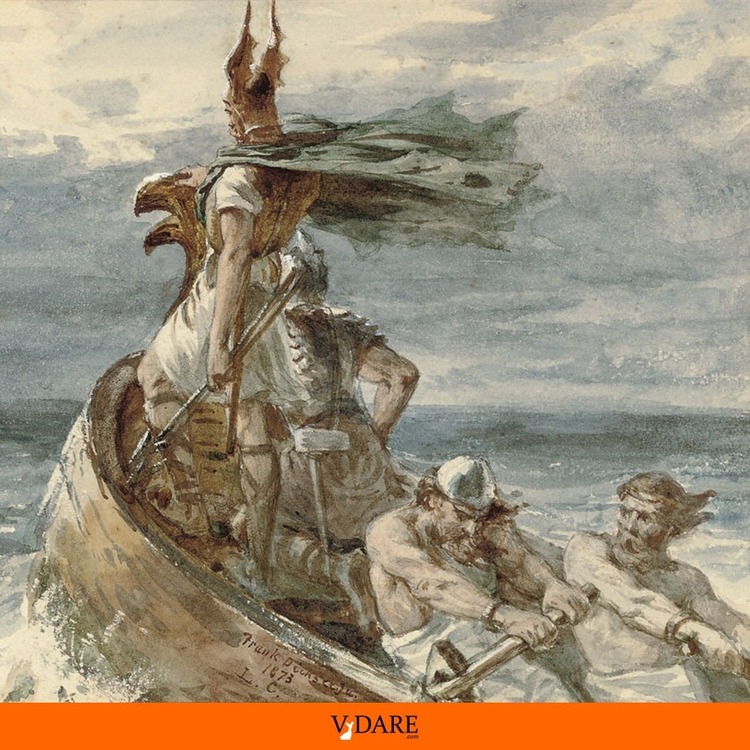
By Steve Sailer
07/09/2024
For much of history, the Atlantic served as humanity’s biggest barrier. But it wasn’t completely impervious. The Norsemen famously got to Iceland, Greenland, and even Canada, but quickly gave up on North America.
A Venetian had settled in the Canary Islands off Africa by the early 14th century, which were already inhabited by Berbers from ancient times.
And recently, studies argue that some Europeans, perhaps the Vikings, spent time in the Azores during the Dark Ages.
From Science:
Vikings in paradise: Were the Norse the first to settle the Azores?
Seafarers may have come and gone from lush archipelago more than 1000 years ago
4 OCT 2021 3:00 PM ET BY MICHAEL PRICE
In 1427, the Portuguese navigator Diogo de Silves first set foot on an uninhabited, Sun-kissed island with white sand beaches, crystal blue bays, and dramatic cliffs, proclaiming it Santa Maria Island. …
According to a new study of lake sediment cores, however, the Portuguese may not have been the first people to reach the island paradise: Viking seafarers may have arrived some 700 years earlier than de Silves and his crew. Any Vikings were long gone by the time Portuguese sailors arrived, the authors note, but some Norse rodent stowaways may have left a lasting genetic mark on the island. …
Taken together, the results suggest humans were occupying and exploiting the natural resources of the Azores at least 700 years earlier than historians have traditionally believed, the team reports today in the Proceedings of the National Academy of Sciences.
It’s not clear when these earliest human settlers of the Azores disappeared, but the Portuguese sailors who explored the islands in the 1400s described the islands as pristine.
Who were those first ancient mariners? “Our best guess is the Norse,” …
Secondly, climate simulations for this time suggest the dominant winds in the North Atlantic Ocean blew from the northeast. Those winds would have put Viking ships heading southwest from their Scandinavian homelands more or less directly into the path of the Azores, Raposeiro says. Those same winds, he adds, would have made it comparatively difficult for sailors coming from the Portuguese mainland to reach the Azores.
What’s unclear is why, having found the Azores, you’d then lose them? They seem pretty nice, with rich volcanic soil:
Perhaps the Vikings decided they didn’t have enough monasteries to pillage?
This is a content archive of VDARE.com, which Letitia James forced off of the Internet using lawfare.